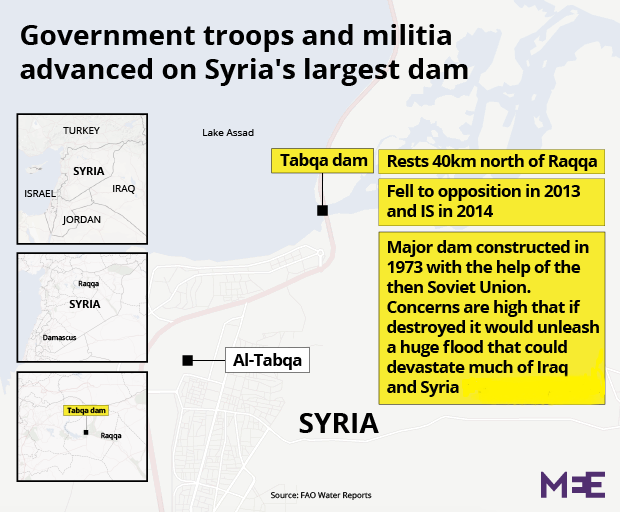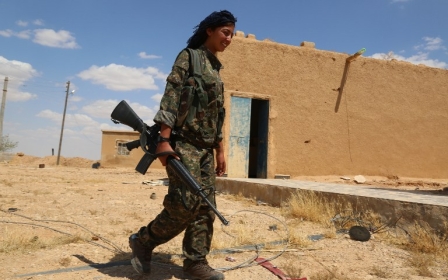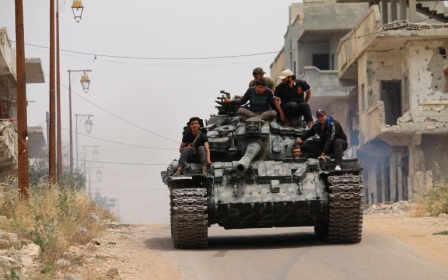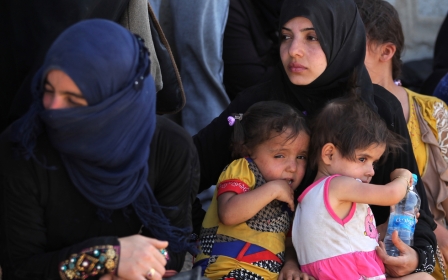Anti-IS advances in Syria as speculation of US-Russian cooperation grows
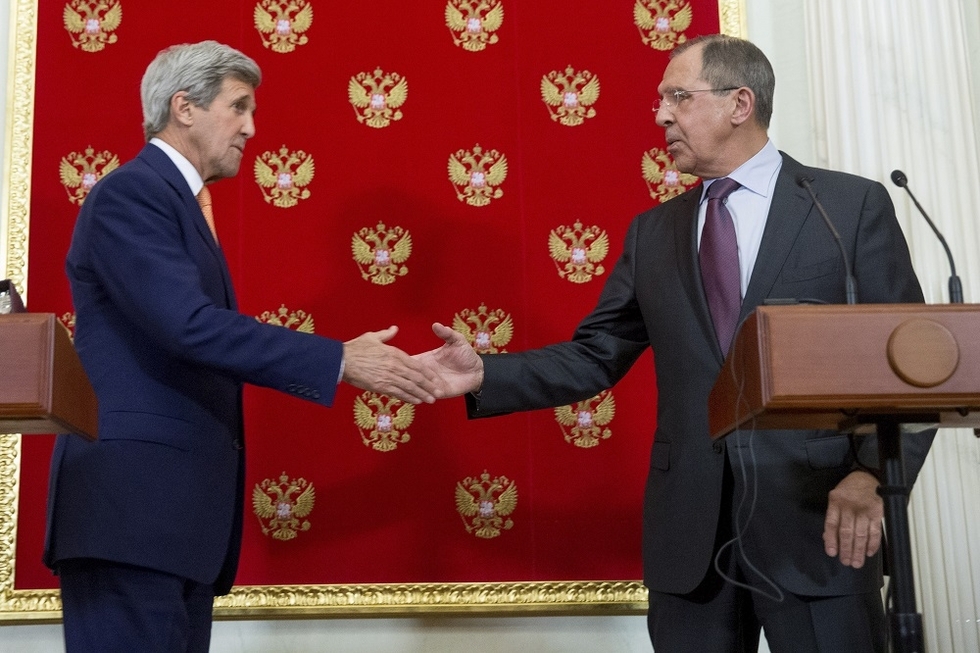
Syrian government troops, flanked by Russia and US-backed Kurdish and Arab fighters on Monday pressed twin offensives against the Islamic State (IS) group in northern Syria.
The push was the latest in a multi-pronged, anti-IS drive in Iraq and Syria that appears to be building pressure on the militants.
While Russian-backed Syrian government forces are advancing to IS positions from the southwest, the US-supported Kurdish and Arab fighters known as the Syrian Democratic Front (SDF) are pushing down from the north, sandwiching IS fighters in the town of Tabqa.
The town is home to Syria’s biggest dam, which has been controlled by IS since 2014, and threatens to flood and destroy large parts of Syria and Iraq if damaged.
The timing of the dual anti-US offensives has raised speculation about possible cooperation between the US and Russia in the anti-IS fight, although the US has long denied that it is willing to do anything more than provide basic coordination to ensure US-led anti-IS coalition planes don’t collide with Russian jets over Syrian airspace."There is a joint operations room in Baghdad where the Iraqis and the Syrians are coordinating with the support of the Americans and the Russians," a source close to the government said on Monday.
Around Tabqa in particular, the source told AFP, it would be "impossible" for the US and Russia to back their respective ground allies if they did not coordinate.
London-based analyst Matthew Henman told AFP that any coordination between Washington and Moscow has so far been "informal".
"There may be an element of informal, top-level coordination to avoid any confusion or inadvertent clashes, but full coordination is unlikely," said Henman, who heads IHS Jane's Terrorism and Insurgency Research Centre.
Russia last month floated a proposal for joint air strikes with the US against militants in Syria, but the offer was swiftly rejected.
17 civilians killed in air strikes
The advance comes as 17 civilians - nearly half of them children - were killed in air raids by the government or Russian air force on a popular market in eastern Syria on the first day of the holy Muslim month of Ramadan.
Russia's Foreign Minister Sergey Lavrov said on Monday that Russia would continue to provide "the most active" air support for Syrian ground troops in Aleppo to stop “terrorist” advances.
“We will decide on how our air forces should act, depending on the situation,” Lavrov said in a media conference. “This will not be a surprise for the Americans.”
Al-Nusra Front, al-Qaeda's Syria affiliate, went on an offensive in Aleppo last week, with the Russian military blaming the US for stalling Russian air strikes against the group’s forces in the region.
“We believe there was plenty of time for the ‘normal’ opposition to leave Nusra Front territories since February. Those who didn’t part ways with the terrorists have only themselves to blame,” Lavrov added.
The drive in Syria comes as anti-IS forces have also stepped up their offensives in Iraq on Monday capturing the southern part of Fallujah, a town some 50 km from Baghdad.
US-backed forces have laid siege to Fallujah since it fell to IS in 2014.
New MEE newsletter: Jerusalem Dispatch
Sign up to get the latest insights and analysis on Israel-Palestine, alongside Turkey Unpacked and other MEE newsletters
Middle East Eye delivers independent and unrivalled coverage and analysis of the Middle East, North Africa and beyond. To learn more about republishing this content and the associated fees, please fill out this form. More about MEE can be found here.


